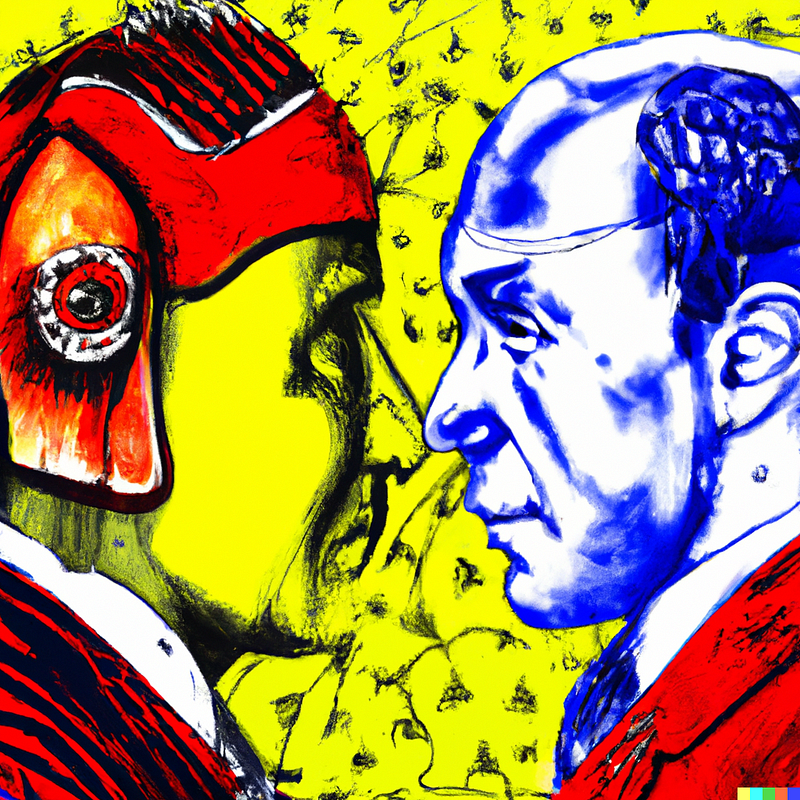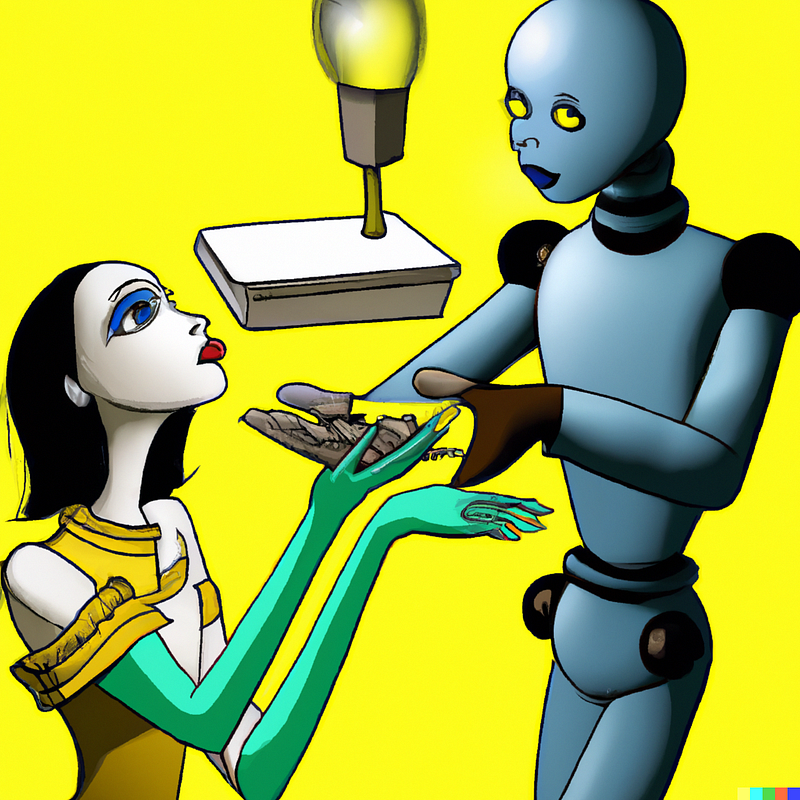The Fear of AI: Bridging the Gap Between Skeptics and Innovators
Written on
Chapter 1: Understanding the Fear of AI
Artificial Intelligence (AI) holds immense potential, yet many individuals express trepidation and skepticism regarding its capabilities. Often, comparisons are drawn between AI and human geniuses like Shakespeare or Picasso, but this perspective is fundamentally flawed. Those who resist change often cling to archaic notions, overlooking the advancements available to us today. But what drives this resistance? The answer can be categorized into two groups: those who are fearful and those who are uninformed.

AI has emerged as a hot topic of discussion in recent years, with the potential to transform sectors such as healthcare, finance, and education. Despite its many advantages, skepticism persists among certain individuals. In this discussion, we will explore the roots of this apprehensive stance and advocate for embracing the innovations AI offers.
> “Better to reign in Hell, than serve in Heaven.” — John Milton, Paradise Lost
The fearful are those who resist transition, worried about being replaced by machines. They hold onto their jobs, anxious about being outpaced by more adept individuals. However, they fail to recognize that AI isn't a threat to their roles; rather, it's a tool designed to augment their capabilities. Just as the industrial revolution led to the creation of new employment opportunities, AI is poised to unlock fresh avenues in the job market.
> “The only true wisdom is in knowing you know nothing.” — Socrates
Conversely, the ignorant are those who have not fully delved into AI's potential. Their conservative mindset prevents them from acknowledging the advantages AI can offer in areas such as healthcare, psychology, and education.
Recognizing that AI possesses both strengths and limitations, similar to human beings, is crucial. While AI excels in data analysis and recognizing patterns, it lacks the emotional depth and creativity inherent in humans. However, it's also essential to note that humans have their own limitations, even in sensitive domains. For instance, not every PhD candidate excels in scientific writing, just as not everyone possesses a profound understanding of complex fields.

I openly admit that my poetic skills do not measure up to those of ChatGPT. I’ve encountered situations where friends struggle to grasp my emotions and personality, underscoring that humans can sometimes be as uninformed or less capable than poorly programmed AI, depending on their formative experiences. This illustrates how both humans and AI are influenced by the data and experiences they encounter during their development.
> “Forget not that the earth delights to feel your bare feet and the winds long to play with your hair.” — Kahlil Gibran, The Prophet
It's imperative for the fearful and the uninformed to abandon their biases and welcome the boundless possibilities that AI presents. We must leave behind the shackles of fear and ignorance, stepping toward a future where technology and humanity collaborate to build a better world. Let's not resist progress but rather greet it with open arms.
Chapter 2: Embracing the Future of AI
In the video “Should we still be afraid of AI? | Ksenia Yadav | TEDxKanata,” the speaker discusses the ongoing debate surrounding AI and whether fear is warranted. This exploration sheds light on the misconceptions and realities of AI technology.
The podcast “Should We Fear AI? | IEA Podcast” delves into the implications of AI on society and the economy, providing insights that can help demystify the technology for skeptics.